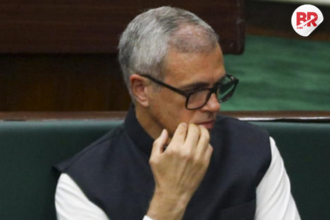
A law meant to protect religious property is now at the center of India’s biggest rights debate.
The Waqf Amendment Act 2025 is currently under the spotlight as it faces a major legal challenge in the Supreme Court of India. This case is not just about laws—it’s about rights, religion, and the role of governance. Let’s break down what’s happening, why it matters, and what to expect next.
What Is the Waqf Amendment Act 2025?
The Waqf Amendment Act 2025 introduces changes to how Waqf properties—lands and assets donated for religious or charitable purposes—are defined and managed in India.

Here’s what the Act aims to do:
- Clarify definitions of Waqf properties to avoid confusion or misuse.
- Improve management by streamlining administrative roles and responsibilities.
- Prevent encroachments through stronger legal tools and enforcement.
- Resolve disputes more quickly by setting up clearer legal pathways.
The government says the Act is necessary to ensure that Waqf assets are used for the right purposes—helping communities, maintaining religious institutions, and preventing corruption.
Also Read: Waqf Violence Escalates: Bangladeshi Miscreants in Bengal Spark Alarm
Why Are People Challenging the Act?
Several petitions have been filed in the Supreme Court, questioning whether the Act is constitutional. Petitioners include community leaders, activists, and legal experts. They argue:
- It violates fundamental rights, including property rights and freedom of religion.
- It lacks proper consultation with stakeholders, including Waqf boards and community organizations.
- It gives too much power to authorities, risking misuse and arbitrary decisions.
- It could affect existing rights of individuals and communities over Waqf properties.
At the heart of the challenge is a fear that the Act could be used unfairly and lead to social and legal injustice.
Also Read: Murshidabad Waqf Protests: BSF Repositioned, But Community Still Feels Targeted
What’s Happening in the Supreme Court?
The Supreme Court has begun hearing the case. Key developments include:
- The Chief Justice and other judges are closely examining the provisions of the Act.
- Senior advocates are arguing that the law is unconstitutional and unfair to affected communities.
- The government’s legal team defends the law, calling it necessary for better governance.
- Stakeholders like NGOs and legal experts are submitting their views as well.
The hearings are being closely watched. The verdict will have a lasting impact on how religious property is governed in India.
Why This Matters to Everyone
This isn’t just a legal battle—it’s about the future of public trust, religious freedom, and social equity. Here’s why you should care:
- Property Rights: The outcome could shape future debates on who controls religious and public assets.
- Religious Freedom: Any law affecting Waqf properties also impacts religious practice and community management.
- Accountability: If the law grants unchecked power, it could reduce transparency in public institutions.
- Social Justice: Waqf properties often fund hospitals, schools, and welfare programs. Their control matters.
Stay Informed, Stay Involved
The Supreme Court’s decision on the Waqf Amendment Act 2025 will set a precedent. Whether you are part of an affected community, a concerned citizen, or just someone who believes in fairness, staying informed is key.
This is not just a legal case. It’s a story of power, people, and the principles that hold democracy together.
Also Read: ‘We Won’t Allow It’: Mamata Blocks Waqf Act as Protests Turn Violent in Bengal












